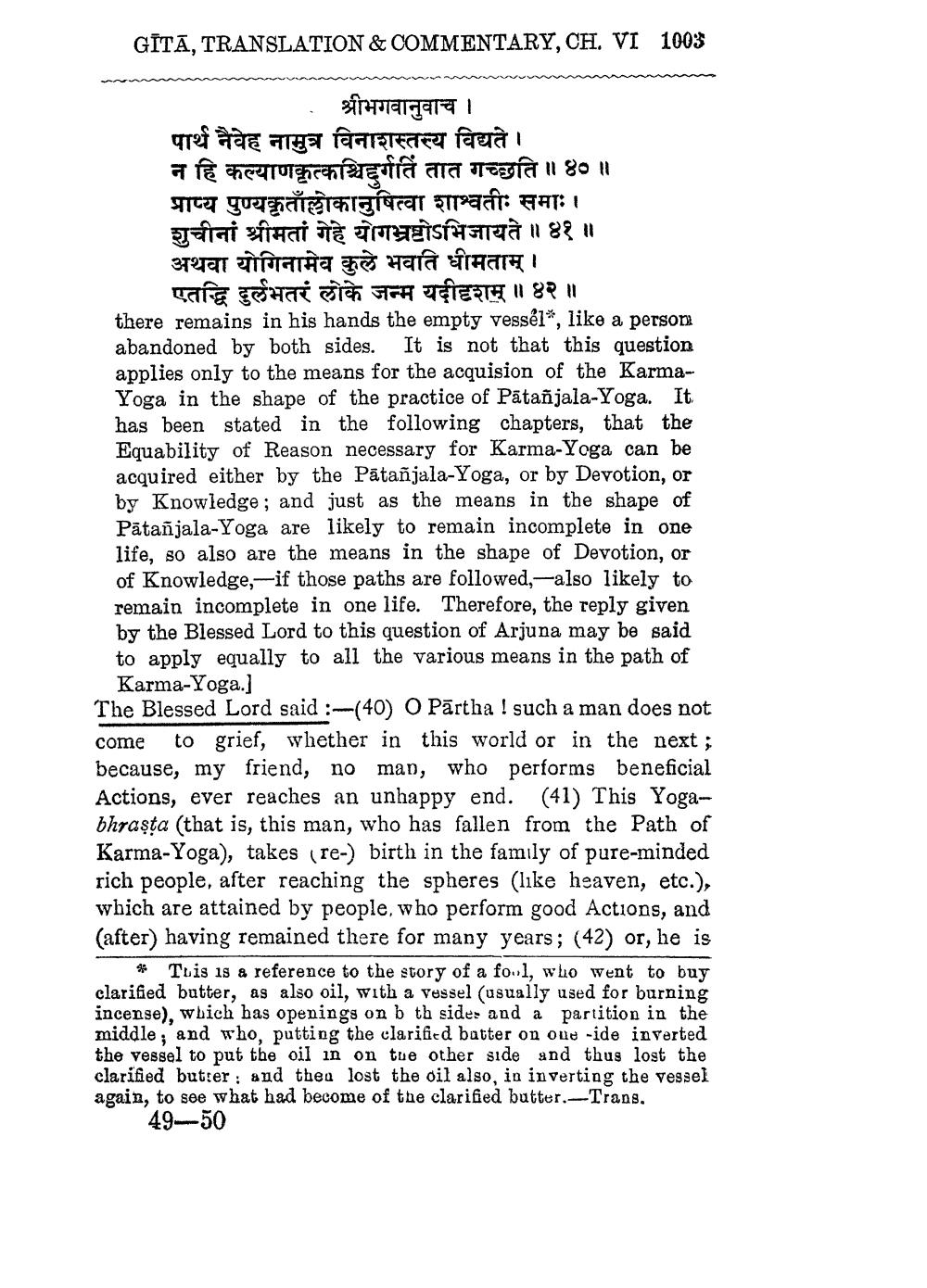________________
GĪTĀ, TRANSLATION & COMMENTARY, CH. VI 1003
श्रीभगवानुवाच । पार्थ नैवेह नामुत्र विनाशस्तस्य विद्यते । न हि कल्याणकृत्कश्चिद्दुर्गतिं तात गच्छति ॥ ४० ॥ प्राप्य पुण्यकृताँल्लोकानुषित्वा शाश्वतीः समाः । शुचीनां श्रीमतां गेहे योगभ्रष्टोऽभिजायते ॥ ४१ ॥ अथवा योगिनामेव कुले भवति धीमताम् । एतद्धि दुर्लभतरं लोके जन्म यदीदृशम् ॥ ४२ ॥
there remains in his hands the empty vessel, like a person abandoned by both sides. It is not that this question applies only to the means for the acquision of the KarmaYoga in the shape of the practice of Patañjala-Yoga. It has been stated in the following chapters, that the Equability of Reason necessary for Karma-Yoga can be acquired either by the Patañjala-Yoga, or by Devotion, or by Knowledge; and just as the means in the shape of Pātañjala-Yoga are likely to remain incomplete in one life, so also are the means in the shape of Devotion, or of Knowledge,-if those paths are followed,-also likely to remain incomplete in one life. Therefore, the reply given by the Blessed Lord to this question of Arjuna may be said to apply equally to all the various means in the path of Karma-Yoga.]
The Blessed Lord said :-(40) O Partha ! such a man does not come to grief, whether in this world or in the next; because, my friend, no man, who performs beneficial Actions, ever reaches an unhappy end. (41) This Yogabhrasta (that is, this man, who has fallen from the Path of Karma-Yoga), takes (re-) birth in the family of pure-minded rich people, after reaching the spheres (like heaven, etc.), which are attained by people, who perform good Actions, and (after) having remained there for many years; (42) or, he is
我 This is a reference to the story of a fool, who went to buy clarified butter, as also oil, with a vessel (usually used for burning incense), which has openings on b th sides and a partition in the middle; and who, putting the clarified butter on one -ide inverted the vessel to put the oil in on the other side and thus lost the clarified butter: and then lost the oil also, in inverting the vessel again, to see what had become of the clarified butter.-Trans.
49-50




